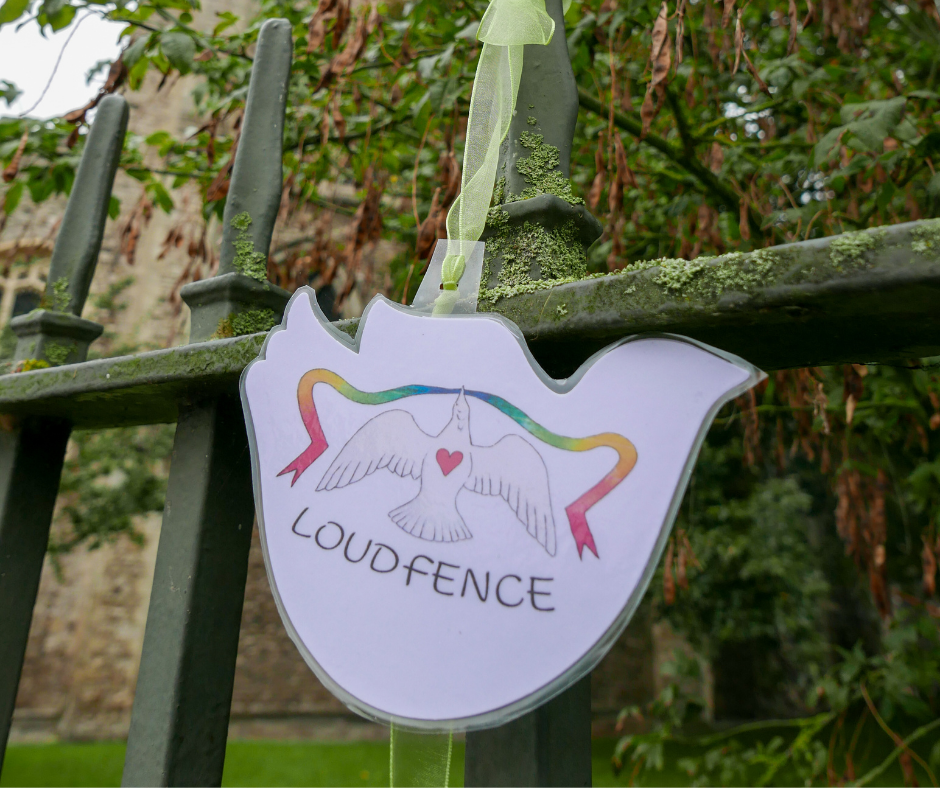"The voice and participation of all victims and survivors of abuse are paramount and should be the golden thread in everything we do to improve our safeguarding policies and practices."
Alexander Kubeyinje, the Church of England's National Director of Safeguarding (responding to the final report of the Independent Inquiry into Child Sexual Abuse)
As we seek to create healthier cultures and as a consequence, safer places, listening to and valuing the voice of victims and survivors is vital.
Below are a number of resources that bring the experience of those with a lived experience of abuse within the Church to the forefront.
Q. How could you share these experiences in your church to help inform your culture?
‘If I Told You, What Would You Do?'

This initiative, jointly funded by Safe Spaces and the Diocese of Newcastle, aims to engage with survivors of faith-based abuse, as well as with those who need to see, hear and respond well to them.
The creators say:'Imagination is one of the most powerful resources for fostering a more empathetic understanding of survivors’ needs and of what helpful responses might look and sound like.
'We also see such responses as intrinsic to the Christian message and to God’s healing grace working in us all, and we think that it is important that this be a part of the conversation, too.'
The resources include a set of short videos, downloadable postcards, poster, and leaflet. Find them on the Diocese of Newcastle's website at: www.newcastle.anglican.org/safeguarding/if-i-told-you-what-would-you-do-
'What safeguarding means to me'
Designed as conversation starters about how safeguarding is all our responsibility, this series of short films, created by the Diocese of Rochester and Rochester Cathedral, explore what safeguarding means to individuals from a range of church roles and other partner organisations.
A number include the thoughts of victims and survivors of abuse and their advocates. Adaptable to a range of situations, from a PCC meeting, bible study, to worship.
Watch the films on YouTube
Download from Vimeo (scroll down the page)
LOUDfence

LOUDfence is a visual installation using ribbons and messages to show solidarity with those affected by child sexual abuse.
Rochester Cathedral has hosted a LOUDfence in recent years. If you would like to consider hosting your own LOUDfence, Survivors Voices, has a helpful 'How to guide' to download.
Letters to a Broken Church

Edited by Janet Fife and Gilo, this book draws on the personal experience of survivors of abuse and their allies.
Letters to a Broken Church speaks directly into the existential abuse crisis facing the Church of England and other Christian denominations right now. Buy the book
Escaping the Maze of Spiritual Abuse: Creating healthy Christian cultures

The term ‘spiritual abuse’ is widely used across the Christian community. But what is it? Sometimes spiritual abuse involves leaders misusing their position, but ministers can also be the victims.
Drawing on a combination of extensive research, individual testimonies, and years of hands-on experience, Lisa Oakley and Justin Humphreys describe clearly the nature of spiritual abuse, and the best ways of countering it. Recovery is possible. Buy the book
Independent Inquiry into Child Sexual Abuse (IICSA)

IICSA was set up because of serious concerns that some organisations - including the Anglican Church - had failed and were continuing to fail to protect children from sexual abuse.
The experiences of victims and survivors of child sexual abuse were at the heart of the Inquiry and their contributions were fundamental in informing the Inquiry’s work to better protect future generations of children. Visit: www.iicsa.org.uk/victims-and-survivors/truth-project
“To be safe asks of others that they keep you safe. The Church has a long and shameful history of failure when it comes to protecting the vulnerable in its midst.
Safeguarding is something we should do joyfully as a sign of mutual care and concern for one another, and as a demonstration of our understanding that everyone is valued in the sight of God."
Bishop Simon Burton-Jones, Bishop of Tonbridge
If you need support
If any of the information on this page has been a trigger, please be encouraged to contact the Diocese’s Safeguarding Team. Visit: www.rochester.anglican.org/safeguarding
In addition, Safe Spaces is an independent service supporting survivors of church-related abuse. It is free to access via telephone - 0300 303 1056 (answerphone available outside of opening times), email - safespaces@splitz.org, or web-chat via www.safespacesenglandandwales.org.uk/
A list of helplines offering support on a range of issues can be found on the Church of England’s website at: www.churchofengland.org/safeguarding/reporting-abuse-and-finding-support
Key Contacts
Greg BarryLead Diocesan Safeguarding Adviser |
Caroline SmithDiocesan Safeguarding Adviser |
Anthony GlocklingDiocesan Safeguarding Adviser |
Alison JonesSafeguarding Administrator |